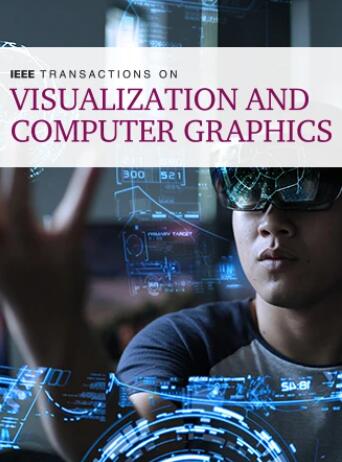Remote research on locomotion interfaces for virtual reality: Replication of a lab-based study on teleporting interfaces
IF 6.5
1区 计算机科学
Q1 COMPUTER SCIENCE, SOFTWARE ENGINEERING
IEEE Transactions on Visualization and Computer Graphics
Pub Date : 2021-12-03
DOI:10.31234/osf.io/wqcuf
引用次数: 1
Abstract
The wide availability of consumer-oriented virtual reality (VR) equipment has enabled researchers to recruit existing VR owners to participate remotely using their own equipment. Yet, there are many differences between lab environments and home environments, as well as differences between participant samples recruited for lab studies and remote studies. This paper replicates a lab-based experiment on VR locomotion interfaces using a remote sample. Participants completed a triangle-completion task (travel two path legs, then point to the path origin) using their own VR equipment in a remote, unsupervised setting. Locomotion was accomplished using two versions of the teleporting interface varying in availability of rotational self-motion cues. The size of the traveled path and the size of the surrounding virtual environment were also manipulated. Results from remote participants largely mirrored lab results, with overall better performance when rotational self-motion cues were available. Some differences also occurred, including a tendency for remote participants to rely less on nearby landmarks, perhaps due to increased competence with using the teleporting interface to update self-location. This replication study provides insight for VR researchers on aspects of lab studies that may or may not replicate remotely.虚拟现实中移动接口的远程研究:基于实验室的远程传输接口研究的复制
面向消费者的虚拟现实(VR)设备的广泛可用性使研究人员能够招募现有的VR所有者使用他们自己的设备远程参与。然而,在实验室环境和家庭环境之间,以及在实验室研究和远程研究中招募的参与者样本之间存在许多差异。本文利用远程样本复制了VR运动接口的实验室实验。参与者在无人监督的远程环境中使用自己的VR设备完成了一个三角形完成任务(走过两条路径,然后指向路径原点)。运动是通过两个版本的传送界面完成的,在旋转自我运动线索的可用性上有所不同。行进路径的大小和周围虚拟环境的大小也被操纵。远程参与者的结果在很大程度上反映了实验室的结果,当有旋转的自我运动提示时,总体上表现更好。也出现了一些差异,包括远程参与者倾向于减少对附近地标的依赖,这可能是由于使用传送界面更新自我定位的能力增强。这项复制研究为VR研究人员提供了关于可能或可能不远程复制的实验室研究方面的见解。
本文章由计算机程序翻译,如有差异,请以英文原文为准。
求助全文
约1分钟内获得全文
求助全文
来源期刊

IEEE Transactions on Visualization and Computer Graphics
工程技术-计算机:软件工程
CiteScore
10.40
自引率
19.20%
发文量
946
审稿时长
4.5 months
期刊介绍:
TVCG is a scholarly, archival journal published monthly. Its Editorial Board strives to publish papers that present important research results and state-of-the-art seminal papers in computer graphics, visualization, and virtual reality. Specific topics include, but are not limited to: rendering technologies; geometric modeling and processing; shape analysis; graphics hardware; animation and simulation; perception, interaction and user interfaces; haptics; computational photography; high-dynamic range imaging and display; user studies and evaluation; biomedical visualization; volume visualization and graphics; visual analytics for machine learning; topology-based visualization; visual programming and software visualization; visualization in data science; virtual reality, augmented reality and mixed reality; advanced display technology, (e.g., 3D, immersive and multi-modal displays); applications of computer graphics and visualization.
 求助内容:
求助内容: 应助结果提醒方式:
应助结果提醒方式:


